古希腊文明和罗马文明谁更好?是爸爸更强还是儿子更棒?
正文翻译
Which civilization was better, Ancient Rome or Ancient Greece?
古希腊文明和罗马文明谁更好?是爸爸更强还是儿子更棒?
古希腊文明和罗马文明谁更好?是爸爸更强还是儿子更棒?
评论翻译
Brian Overland, Citizen of the World, author or programming books
布莱恩-奥弗兰,世界公民,作家或编程书籍的作者
It is very tempting to say “Greece,” because you can compare the idealism of the Olympic Games to the savagery of Gladitorial combat. But that is looking at only one aspect of the civilizations. We should remember that ancient Greece included Sparta as well as Athens. In the end, then, even although I am tempted to say Greece, the wisest call is really a split decision.
很想回答说 "希腊",因为你可以将奥林匹克运动会的理想主义与格莱迪托尔战斗的野蛮性相比较就能得出结论。
但以上只是我们观察文明的一个面向。我们应该记住,古希腊包括斯巴达,也包括雅典。
那么最后即使我很想回答说希腊,但最明智的决定其实还是把这个回答一分为二。
Classical Greece and Rome excelled in such different ways, that this is a classic “apples to oranges” comparison. They are simply too different in their strengths.
古典希腊和罗马在各自不同的方面都很优秀,这是典型的 "苹果和橘子 "的比较。它们的优势实在是太不一样了。
Greece was by far the more creative and original of the two civilizations. They created entirely new branches of knowledge and laid down its basic foundations. They literally invented logic. Drama. Democracy. The jury system. Epic poetry. Tragedy and comedy. And even the basic axioms of mathematics, not to mention the system of proofs — now considered the essence of mathematical research today.
迄今为止,希腊是两个文明中更具创造性和原创性的文明。他们创造了全新的知识分支,并奠定了其基本基础。
他们真的发明了逻辑、戏剧、民主制度、陪审团制度、史诗、悲剧和喜剧。
他们甚至还发明了数学的基本公理,更不用说现在被认为是当今数学研究精华的证明体系了。
Compared to the Greeks, the Romans were largely unoriginal imitators in the creative arts. The best you can say about the Romans, when it comes to intellcutual pursuits, is they had the good sense to appreciate what the Greeks did and write intelligent commenatries on it.
与希腊人相比,罗马人在创造性艺术方面基本上是毫无创意的模仿者。
罗马人做的最好的地方是,一旦当它开始对理性和智慧的追求时,他们总有着良好的意识,进而去欣赏希腊人的成就,并且对古希腊文明予以聪明的评价。
But the Romans far excelled the Greeks at administrating and ruling large empires. They knew how to keep the peace throughout the known world. They were superb organizers and managers. They didn’t make the same mistake that ancient Athens did, which was to try to expand their empire too quickly. Instead, they built on victory after victory, slowly accumulating through centuries, until no one was left to stand in their way.
但罗马人在管理和统治大帝国方面远胜希腊人。
他们知道如何维持已知世界的和平。他们是超级的组织者和管理者。他们没有犯和古雅典一样的错误,那就是试图过快地扩张他们的帝国。相反,他们建立在一个又一个胜利的基础上,通过几个世纪的慢慢积累,直到没有人能够阻挡他们的步伐。
Roman law was supremely effective, so much so, that even after thousands of years, there are some concepts of Roman law in use even today. And this is (in part) why Latin is the language of so many legal terms.
古罗马法典是极其有效的,以至于即使在几千年后的今天,仍有一些罗马法的概念在使用。这也是为什么拉丁文是这么多法律术语的来源(部分原因)。
You might say that the Greeks supplied the head and the heart of the classical spirit… but the Romans provided the bones, muscles, sinews, arms, legs, and lungs… in short, Rome became the body through which the spirit of Greece was transported to Europe, North Africa, and the Near East.
你可能会说,希腊人提供了古典精神的头和心脏......但罗马人提供了骨骼、肌肉、筋骨、手臂、腿和肺......
简而言之,罗马成为了希腊精神的载体,并将其传播到了欧洲、北非和近东。
The importance of both Greece and Rome is well reflected in the history of Christianity….
Greek-speaking people were the first non-Jewish converts to the new religion (Christianity), which is why the New Testament is written in Greek… thus making the Christian religion a largely Greek one, at least in its abstract concepts of God as an eternal Being beyond space and time.
But the organization of the Church, in time, was of course taken over by the Bishop of Rome. And the organization of the Church became Roman througout the majority of Christendom.
在基督教的历史上,希腊和罗马的重要性都得到了充分的体现....。
说希腊语的人是第一批皈依新宗教(基督教)的非犹太人,这也是为什么新约圣经是用希腊语写成的原因。
从而使基督教在很大程度上成为希腊的宗教,至少在其抽象的概念上,上帝是超越时空的永恒存在。
但在此期间的教会组织,当然是由罗马的主教接管的。
教会组织在整个基督教世界的大部分地区都成为了罗马式的教会。
Peter Pappas
I will disagree with you in terms of church structure and admin. Christianity really was guided by the Byzantine empire for its first 1000 years which was far more culturally Greek than Latin. While in the west the bishop of Rome Had supremacy in the east it was the emperor and patriarch of Constantinople, Antioch, Jerusalem, and Alexandria who were dominant. The east was far more culturally Greek than the west. And the first 7 ecumenical councils (which pretty much established Christianity) were largely dominated by the eastern greek bishops and guidance of the Emperor. The bishop of Rome did not have control over the church( and only in the west to this day) until the schism of 1054.
In fact the Eastern Orthodox Church is far more democratic today building on the ideals of Ancient Greece (Athens predominantly) while the western church follows more of an autocratic system of Ancient Rome.
我不同意你在教会结构和管理方面的看法。
基督教在它的前1000年历史里确实是由拜占庭帝国主导的,而且它在文化上更多的是属于希腊式的而不是拉丁式的。
虽然在西边,罗马的主教有至高无上的地位,但是在东部,拥有权威的是帝国皇帝以及君士坦丁堡、安条克、耶路撒冷和亚历山大港的族长。
东部在文化上远比西部更希腊化。而前7次大公会议(几乎建立了基督教)在很大程度上是由东希腊主教和皇帝的主导的。罗马的主教直到1054年的分裂才控制了教会。
事实上,东正教会今天更加民主,它建立在古希腊(主要是雅典)的理想之上,而西方教会则更多地遵循古罗马的专制制度。
译者注:Greek East and Latin West
摘自维基百科
Greek East and Latin West are terms used to distinguish between the two parts of the Greco-Roman world, specifically the eastern regions where Greek was the lingua franca (Anatolia, Greece, the Balkans, the Levant and Egypt) and the western parts where Latin filled this role (The Maghreb, Central Europe, Gaul, Iberia, Italy and the British Isles). During the Roman Empire a divide had persisted between Latin- and Greek-speaking areas; this divide was encouraged by administrative changes in the empire's structure between the 3rd and 5th centuries, which led ultimately to the establishment of separate administrations for the Eastern and Western halves of the Empire.
东希腊语区和西拉丁语区是用来区分希腊-罗马世界两个部分的术语,特别是以希腊语为通用语言的东部地区(安纳托利亚、希腊、巴尔干、黎凡特和埃及)和以拉丁语充当这一角色的西部地区(马格里布、中欧、高卢、伊比利亚、意大利和不列颠群岛)。在罗马帝国时期,拉丁语区和希腊语区之间一直存在着鸿沟;3世纪到5世纪之间帝国结构的行政变化助长了这种鸿沟,最终导致了帝国东西两半的独立行政机构的建立。
译者注:First seven ecumenical councils 前七次大公会议
摘自维基百科
In the history of Christianity, the first seven ecumenical councils include the following: the First Council of Nicaea in 325, the First Council of Constantinople in 381, the Council of Ephesus in 431, the Council of Chalcedon in 451, the Second Council of Constantinople in 553, the Third Council of Constantinople from 680–681 and finally, the Second Council of Nicaea in 787.
These seven events represented an attempt by Church leaders to reach an orthodox consensus, restore peace[1] and develop a unified Christendom.[2] Catholic, Eastern Orthodox, Oriental Orthodox, the Church of the East, Old Catholic, Anglican, and some Lutheran churches all trace the legitimacy of their clergy by apostolic succession back to this period and beyond, to the earlier period referred to as Early Christianity.
This era begins with the First Council of Nicaea, which enunciated the Nicene Creed that in its original form and as modified by the First Council of Constantinople of 381 was seen by all later councils as the touchstone of orthodoxy on the doctrine of the Trinity.
在基督教历史上,前七次大公会议包括:325年的尼西亚第一次大公会议、381年的君士坦丁堡第一次大公会议、431年的以弗所大公会议、451年的卡尔西顿大公会议、553年的君士坦丁堡第二次大公会议、680-681年的君士坦丁堡第三次大公会议,最后是787年的尼西亚第二次大公会议。
这七件事代表了教会领袖们试图达成正统共识,恢复和平[1],发展统一的基督教世界[2]。 天主教、东正教、东方正教、东方教会、旧天主教、圣公会和一些路德教教会都将其神职人员通过使徒继承的合法性追溯到这一时期,甚至更早的被称为早期基督教的时期。
这个时代始于尼西亚第一次大公会议,该会议阐明了尼西亚信经,该信经的原始形式和经381年君士坦丁堡第一次大公会议修改后,被后来的所有大公会议视为三位一体教义的正统试金石。
Cj Castillo
The “Byzantine” Empire never existed. irl it was Roman.
"拜占庭 "帝国从来没有存在过,它就是罗马。
(译者注:关于罗马帝国、古罗马帝国、东罗马帝国、西罗马帝国、神圣罗马帝国、第三罗马、绿罗马、南罗马、罗马尼亚之间的关系,比较复杂,译者也没完全搞清楚)
Peter Pappas
That’s true. But the eastern Roman Empire was far more culturally Greek than Latin. Compared to the western empire or the classical unified Roman Empire
这倒是真的。但你只要比较一下西罗马帝国或古典统一的罗马帝国,就能得出结论,东罗马帝国在文化上的希腊化程度远远高于拉丁化程度。
Thomas Musselman
Better for….? Ancient Greek city states and Alexander’s empire and the Roman Republic and Empire were all societies designed to further the interests of the elite at the expense of everyone else. Both groups, Greek and Roman, were slave societies. Rome was about 1/3 slaves. Sparta sent its young male citizens out at adulthood to murder one or more of their enslaved neighbors as a test of manhood and citizenship. Athens created a mini-empire that involved genocide of a city that dare resist. Violence was common and life was short. Epidemics were common and aggressive war to invade others was the norm; resisters were enslaved or killed. Some lucky ones merely lost all their property. Debt peonage caused people to become slaves.
谁比谁好在哪....?古希腊的城邦和亚历山大的帝国以及罗马的共和国和帝国,都是以牺牲其他所有人的利益为代价,来增进精英阶层的利益的社会。
希腊和罗马这两个集团都是奴隶社会。罗马大约有1/3是奴隶。而斯巴达把其成年后的年轻的男性公民送出去,去谋杀和奴役一个或多个邻居,作为对男子汉和公民身份的考验。
雅典建立了一个小型帝国,对敢于反抗的城市进行种族灭绝。
暴力是常见的,生命是短暂的。流行病很常见,侵略战争入侵他人是常态;抵抗者被奴役或杀害。
一些幸运的人只是失去了所有的财产。债务农奴制使人们成为奴隶。
Both groups made some technological advances and sometimes introduced aspects of political change that from our point of view were the start of a 2500 year long human rights revolution that only would take off from 1700 forward.
罗马和希腊这两个集团都取得了一些技术上的进步,有时也引入了一些政治变革的方面,从我们的角度来看,这是一场长达2500年的人权革命的开始,而这场革命只有在1700年以后才会有起色。
The Romans were more dependent on the Greeks for crucial intellectual developments since the Greeks went first; in essence Rome was a continuation of Greek culture in the same way that the US is a continuation of UK developments. Greek learning was prized (usually) in Rome and absorbed; the Eastern half of the Roman Empire spoke Greek as its lingua franca, with a sliver of Latin speakers in positions of power (so you could have tri-lingual people, since locals would continue to speak other languages at home or in local markets).
罗马人在关键的知识体系发展上,更多地需要依赖希腊人,因为希腊人走在前面;本质上罗马是希腊文化的延续,就像美国是英国发展的延续一样。
希腊学问在罗马受到重视(通常),并被吸收;罗马帝国的东半部以希腊语为通用语,有一小部分讲拉丁语的人处于权力地位(所以有操三国语言的人,当地人会在家里或当地市场上继续讲其他语言)。
So Greece is usually thought of as having the greatest long-term impact on us now since the power of ideas outlasted use of Roman aquaducts and roads, but the West is really a continuation of both worlds. The Catholic church and Western polities took over Roman forms and laws; “dukes” started with Rome and Roman law influenced law through the Napoleonic Code days. So both are significant.
所以希腊通常被认为对我们的长期影响最大,因为思想的力量超过了罗马水渠和道路的使用,但西方其实是两个世界的延续。
天主教会和西方政体承接了罗马的形式和法律;"公爵体系"从罗马开始,罗马法一直影响到拿破仑法典时代。所以两者都很重要。
Carson Cox, History buff
Originally Answered: Would you consider ancient Greece more powerful than ancient Rome or vice versa?
I would consider Ancient Rome to be more powerful. It had immense amounts of resources from its vast territories, and for centuries the empire included Greece itself. Rome has the greatest military force for hundreds of years, and was the terror of the ancient world. Their military tactics (such as the testudo formation) were ingenious, and such innovative defensive designs kept soldiers well protected while still on the move.
The Romans were fantastic at absorbing culture. For every territory they toppled and every civilization they crushed, they borrowed a piece of their culture. For the Greeks, it was art, music, and literature. Ancient Greece has its colonies. A few were even in Italy. But the Romans just expanded their sphere of influence wider than everyone else. Roman delegates were even sent to China on a few occasions. Roman coins with the emperor’s likeness have been found in Vietnam and Japan. Roman expeditions reaches as far as Nigeria in Africa. Marks, even small, conspicuous ones, have been found in almost all parts of the Old World.
原文回答 你认为古希腊比古罗马更强大还是反之?
我会认为古罗马更强大。它拥有庞大的领土资源,几个世纪以来,帝国包括希腊本身。罗马拥有数百年来最强大的军事力量,令古代世界感到恐惧。他们的军事战术(如方阵)非常巧妙,这种创新的防御设计使士兵们在移动中得到很好的保护。
罗马人在吸收文化方面非常神奇。他们每推翻一片领土,每摧毁一个文明,都会借鉴他们的文化。对希腊人来说,那是艺术、音乐和文学。古希腊有它的殖民地。有几个甚至在意大利。但罗马人就是把自己的势力范围扩大得比别人更广。罗马人甚至有几次派代表去中国。在越南和日本都发现了带有皇帝肖像的罗马硬币。罗马人的远征最远到达非洲的尼日利亚。在旧世界的几乎所有地方都发现了其标记,即使是小的、但显眼的标记。
Aurelio Cevolotto, History Teacher
The question seems to be asking who is stronger, the father or the son?
这个问题好像是在问,在你们家,是爸爸更强,还是儿子更棒?
It is this ,
A) Greek ,
看看这个
A) 希腊

or this,
B) Roman, better ?
或者这个。
B)罗马,是不是看上去更好?
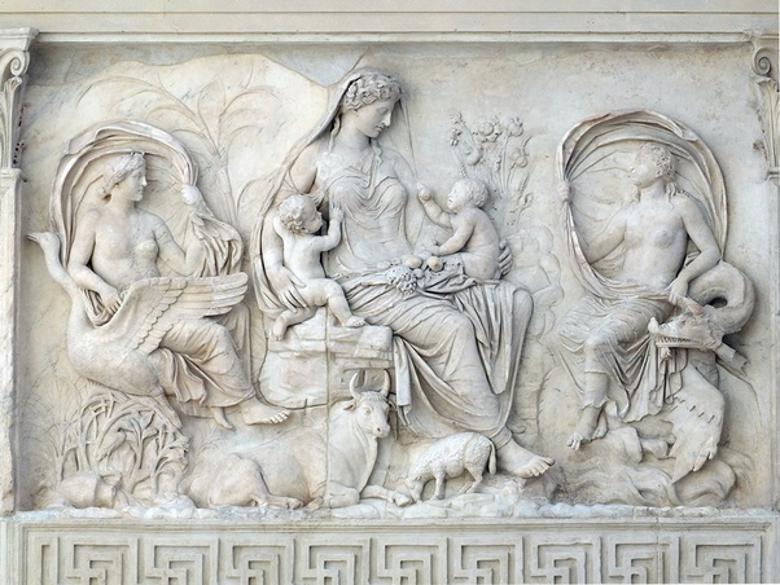
This ,
A) Greek,
那这个呢
A)希腊
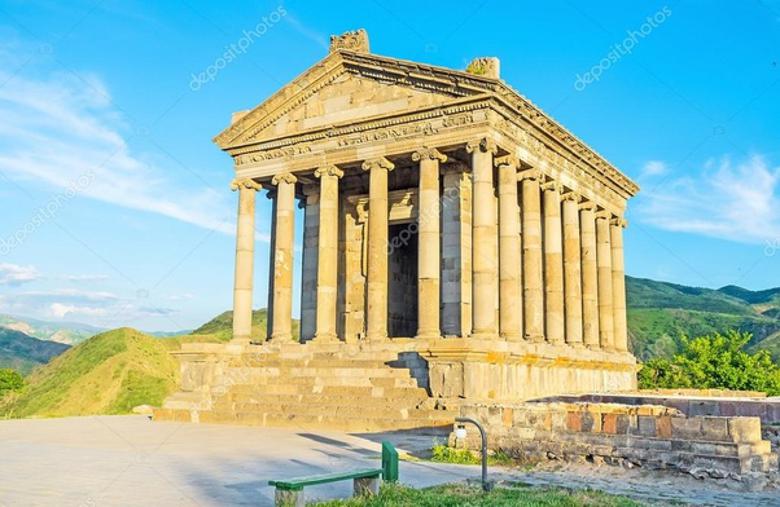
or this,
B) Roman, ?
或这个。
B)罗马?
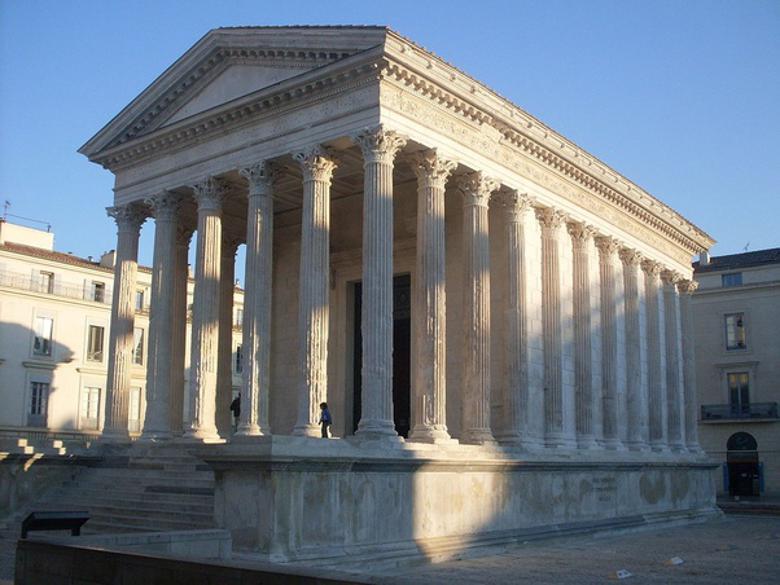
( If You answer A), consider that it is thought to be a masterpiece of the Ancient Greek architecture , but it was built in Armenia during the Roman age)
(如果你的答案是A),考虑到它被认为是古希腊建筑的杰作,但它建于亚美尼亚的罗马时代)
Again, this
A) Greek,
同样,这
A)希腊
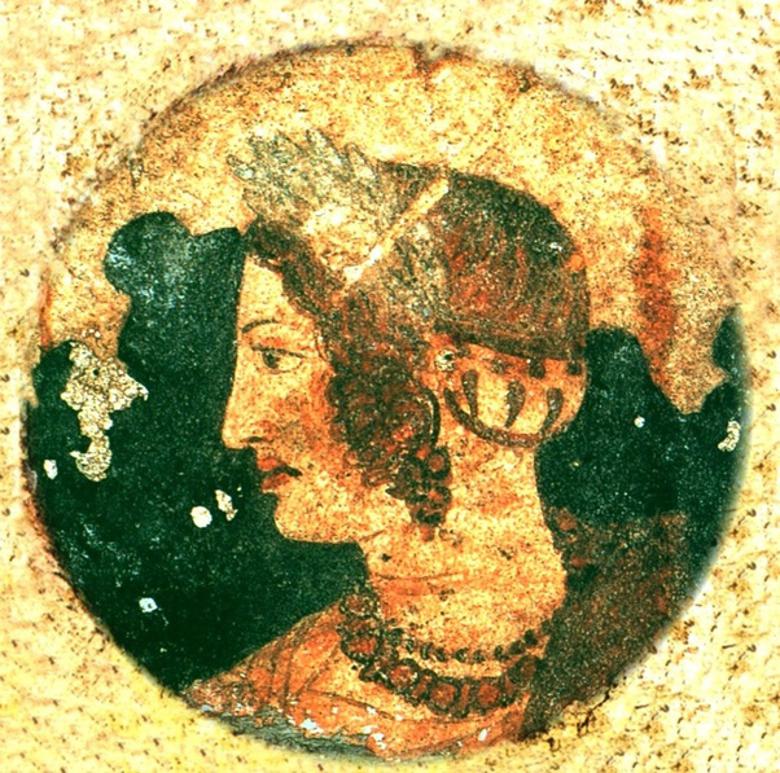
or this,
B) Roman, ?
或这个。
B)罗马?
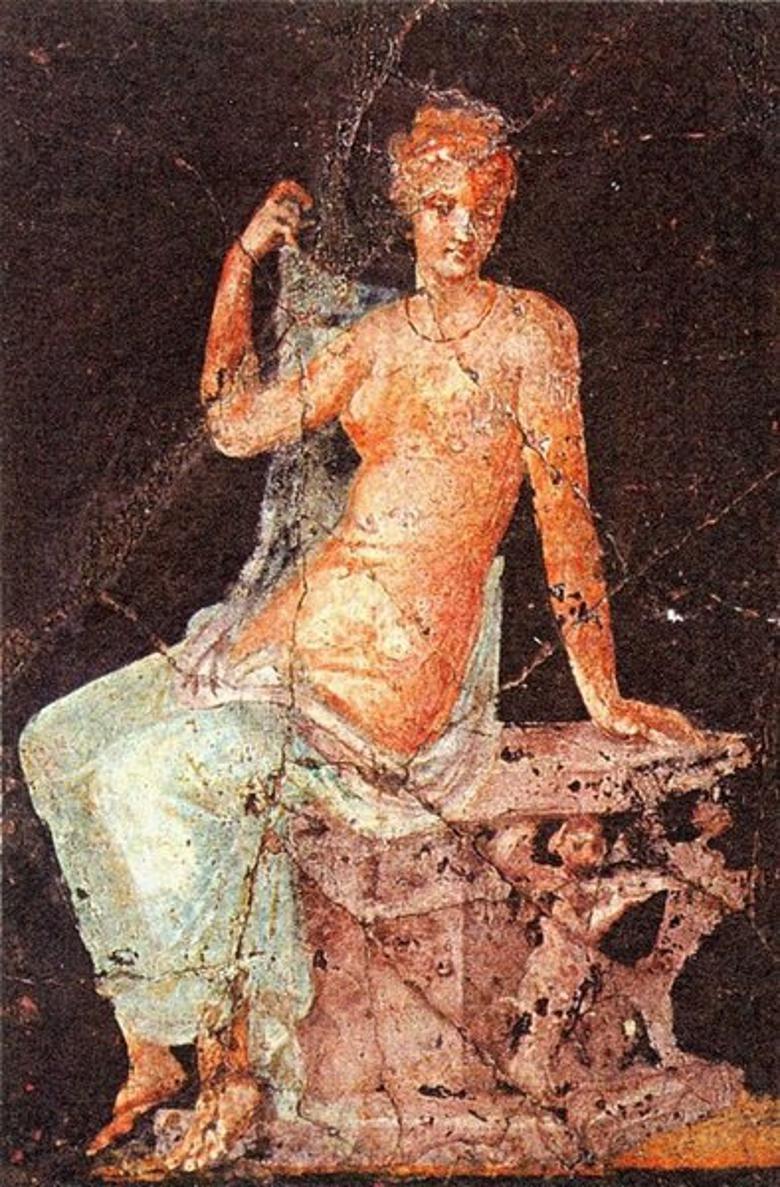
Or more, this,
A, Greek
或者更多,这。
A, 希腊

or this,
B) Roman, ?
或这个。
B)罗马
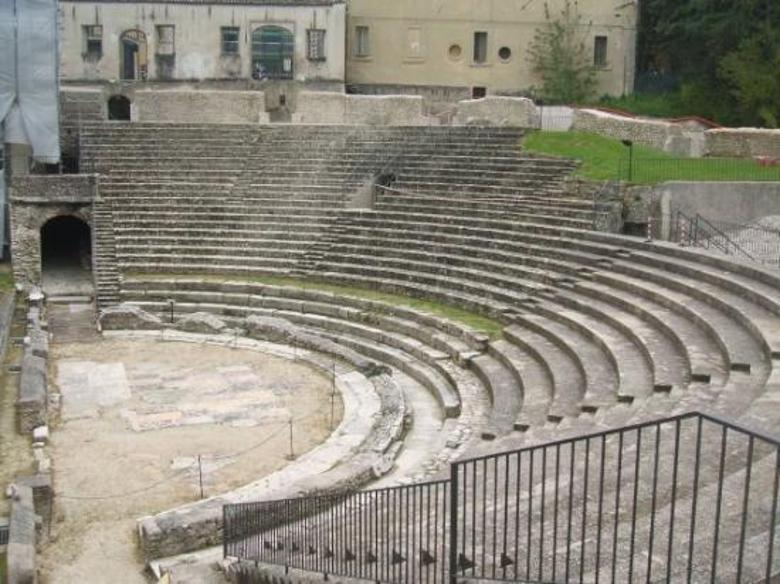
Or even this,
C) Undefined*, ?
甚至这个。
C) 不确定*,?
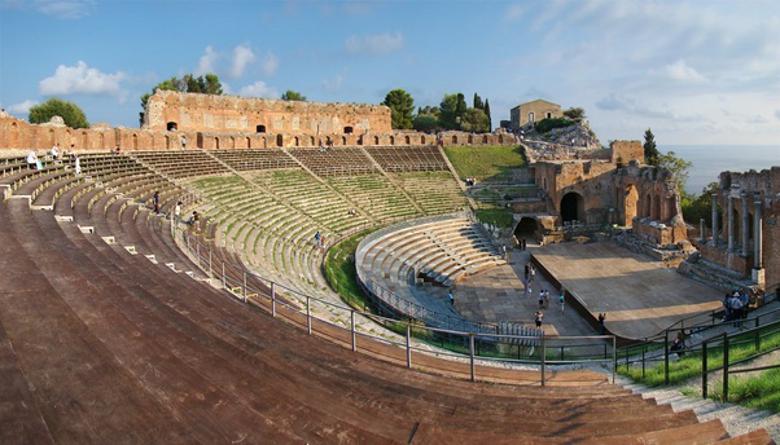
C), in fact, is the so called, Greek Theatre of Taormina, Sicily, that, honestly, was reconstructed by the Romans.
其实C就是所谓的,西西里岛陶尔米纳的希腊剧院,说实话,是罗马人重建的。
So the question is, who is better, the father or the son?
那么问题来了,谁更好,爸爸还是儿子?
布莱恩-奥弗兰,世界公民,作家或编程书籍的作者
It is very tempting to say “Greece,” because you can compare the idealism of the Olympic Games to the savagery of Gladitorial combat. But that is looking at only one aspect of the civilizations. We should remember that ancient Greece included Sparta as well as Athens. In the end, then, even although I am tempted to say Greece, the wisest call is really a split decision.
很想回答说 "希腊",因为你可以将奥林匹克运动会的理想主义与格莱迪托尔战斗的野蛮性相比较就能得出结论。
但以上只是我们观察文明的一个面向。我们应该记住,古希腊包括斯巴达,也包括雅典。
那么最后即使我很想回答说希腊,但最明智的决定其实还是把这个回答一分为二。
Classical Greece and Rome excelled in such different ways, that this is a classic “apples to oranges” comparison. They are simply too different in their strengths.
古典希腊和罗马在各自不同的方面都很优秀,这是典型的 "苹果和橘子 "的比较。它们的优势实在是太不一样了。
Greece was by far the more creative and original of the two civilizations. They created entirely new branches of knowledge and laid down its basic foundations. They literally invented logic. Drama. Democracy. The jury system. Epic poetry. Tragedy and comedy. And even the basic axioms of mathematics, not to mention the system of proofs — now considered the essence of mathematical research today.
迄今为止,希腊是两个文明中更具创造性和原创性的文明。他们创造了全新的知识分支,并奠定了其基本基础。
他们真的发明了逻辑、戏剧、民主制度、陪审团制度、史诗、悲剧和喜剧。
他们甚至还发明了数学的基本公理,更不用说现在被认为是当今数学研究精华的证明体系了。
Compared to the Greeks, the Romans were largely unoriginal imitators in the creative arts. The best you can say about the Romans, when it comes to intellcutual pursuits, is they had the good sense to appreciate what the Greeks did and write intelligent commenatries on it.
与希腊人相比,罗马人在创造性艺术方面基本上是毫无创意的模仿者。
罗马人做的最好的地方是,一旦当它开始对理性和智慧的追求时,他们总有着良好的意识,进而去欣赏希腊人的成就,并且对古希腊文明予以聪明的评价。
But the Romans far excelled the Greeks at administrating and ruling large empires. They knew how to keep the peace throughout the known world. They were superb organizers and managers. They didn’t make the same mistake that ancient Athens did, which was to try to expand their empire too quickly. Instead, they built on victory after victory, slowly accumulating through centuries, until no one was left to stand in their way.
但罗马人在管理和统治大帝国方面远胜希腊人。
他们知道如何维持已知世界的和平。他们是超级的组织者和管理者。他们没有犯和古雅典一样的错误,那就是试图过快地扩张他们的帝国。相反,他们建立在一个又一个胜利的基础上,通过几个世纪的慢慢积累,直到没有人能够阻挡他们的步伐。
Roman law was supremely effective, so much so, that even after thousands of years, there are some concepts of Roman law in use even today. And this is (in part) why Latin is the language of so many legal terms.
古罗马法典是极其有效的,以至于即使在几千年后的今天,仍有一些罗马法的概念在使用。这也是为什么拉丁文是这么多法律术语的来源(部分原因)。
You might say that the Greeks supplied the head and the heart of the classical spirit… but the Romans provided the bones, muscles, sinews, arms, legs, and lungs… in short, Rome became the body through which the spirit of Greece was transported to Europe, North Africa, and the Near East.
你可能会说,希腊人提供了古典精神的头和心脏......但罗马人提供了骨骼、肌肉、筋骨、手臂、腿和肺......
简而言之,罗马成为了希腊精神的载体,并将其传播到了欧洲、北非和近东。
The importance of both Greece and Rome is well reflected in the history of Christianity….
Greek-speaking people were the first non-Jewish converts to the new religion (Christianity), which is why the New Testament is written in Greek… thus making the Christian religion a largely Greek one, at least in its abstract concepts of God as an eternal Being beyond space and time.
But the organization of the Church, in time, was of course taken over by the Bishop of Rome. And the organization of the Church became Roman througout the majority of Christendom.
在基督教的历史上,希腊和罗马的重要性都得到了充分的体现....。
说希腊语的人是第一批皈依新宗教(基督教)的非犹太人,这也是为什么新约圣经是用希腊语写成的原因。
从而使基督教在很大程度上成为希腊的宗教,至少在其抽象的概念上,上帝是超越时空的永恒存在。
但在此期间的教会组织,当然是由罗马的主教接管的。
教会组织在整个基督教世界的大部分地区都成为了罗马式的教会。
Peter Pappas
I will disagree with you in terms of church structure and admin. Christianity really was guided by the Byzantine empire for its first 1000 years which was far more culturally Greek than Latin. While in the west the bishop of Rome Had supremacy in the east it was the emperor and patriarch of Constantinople, Antioch, Jerusalem, and Alexandria who were dominant. The east was far more culturally Greek than the west. And the first 7 ecumenical councils (which pretty much established Christianity) were largely dominated by the eastern greek bishops and guidance of the Emperor. The bishop of Rome did not have control over the church( and only in the west to this day) until the schism of 1054.
In fact the Eastern Orthodox Church is far more democratic today building on the ideals of Ancient Greece (Athens predominantly) while the western church follows more of an autocratic system of Ancient Rome.
我不同意你在教会结构和管理方面的看法。
基督教在它的前1000年历史里确实是由拜占庭帝国主导的,而且它在文化上更多的是属于希腊式的而不是拉丁式的。
虽然在西边,罗马的主教有至高无上的地位,但是在东部,拥有权威的是帝国皇帝以及君士坦丁堡、安条克、耶路撒冷和亚历山大港的族长。
东部在文化上远比西部更希腊化。而前7次大公会议(几乎建立了基督教)在很大程度上是由东希腊主教和皇帝的主导的。罗马的主教直到1054年的分裂才控制了教会。
事实上,东正教会今天更加民主,它建立在古希腊(主要是雅典)的理想之上,而西方教会则更多地遵循古罗马的专制制度。
译者注:Greek East and Latin West
摘自维基百科
Greek East and Latin West are terms used to distinguish between the two parts of the Greco-Roman world, specifically the eastern regions where Greek was the lingua franca (Anatolia, Greece, the Balkans, the Levant and Egypt) and the western parts where Latin filled this role (The Maghreb, Central Europe, Gaul, Iberia, Italy and the British Isles). During the Roman Empire a divide had persisted between Latin- and Greek-speaking areas; this divide was encouraged by administrative changes in the empire's structure between the 3rd and 5th centuries, which led ultimately to the establishment of separate administrations for the Eastern and Western halves of the Empire.
东希腊语区和西拉丁语区是用来区分希腊-罗马世界两个部分的术语,特别是以希腊语为通用语言的东部地区(安纳托利亚、希腊、巴尔干、黎凡特和埃及)和以拉丁语充当这一角色的西部地区(马格里布、中欧、高卢、伊比利亚、意大利和不列颠群岛)。在罗马帝国时期,拉丁语区和希腊语区之间一直存在着鸿沟;3世纪到5世纪之间帝国结构的行政变化助长了这种鸿沟,最终导致了帝国东西两半的独立行政机构的建立。
译者注:First seven ecumenical councils 前七次大公会议
摘自维基百科
In the history of Christianity, the first seven ecumenical councils include the following: the First Council of Nicaea in 325, the First Council of Constantinople in 381, the Council of Ephesus in 431, the Council of Chalcedon in 451, the Second Council of Constantinople in 553, the Third Council of Constantinople from 680–681 and finally, the Second Council of Nicaea in 787.
These seven events represented an attempt by Church leaders to reach an orthodox consensus, restore peace[1] and develop a unified Christendom.[2] Catholic, Eastern Orthodox, Oriental Orthodox, the Church of the East, Old Catholic, Anglican, and some Lutheran churches all trace the legitimacy of their clergy by apostolic succession back to this period and beyond, to the earlier period referred to as Early Christianity.
This era begins with the First Council of Nicaea, which enunciated the Nicene Creed that in its original form and as modified by the First Council of Constantinople of 381 was seen by all later councils as the touchstone of orthodoxy on the doctrine of the Trinity.
在基督教历史上,前七次大公会议包括:325年的尼西亚第一次大公会议、381年的君士坦丁堡第一次大公会议、431年的以弗所大公会议、451年的卡尔西顿大公会议、553年的君士坦丁堡第二次大公会议、680-681年的君士坦丁堡第三次大公会议,最后是787年的尼西亚第二次大公会议。
这七件事代表了教会领袖们试图达成正统共识,恢复和平[1],发展统一的基督教世界[2]。 天主教、东正教、东方正教、东方教会、旧天主教、圣公会和一些路德教教会都将其神职人员通过使徒继承的合法性追溯到这一时期,甚至更早的被称为早期基督教的时期。
这个时代始于尼西亚第一次大公会议,该会议阐明了尼西亚信经,该信经的原始形式和经381年君士坦丁堡第一次大公会议修改后,被后来的所有大公会议视为三位一体教义的正统试金石。
Cj Castillo
The “Byzantine” Empire never existed. irl it was Roman.
"拜占庭 "帝国从来没有存在过,它就是罗马。
(译者注:关于罗马帝国、古罗马帝国、东罗马帝国、西罗马帝国、神圣罗马帝国、第三罗马、绿罗马、南罗马、罗马尼亚之间的关系,比较复杂,译者也没完全搞清楚)
Peter Pappas
That’s true. But the eastern Roman Empire was far more culturally Greek than Latin. Compared to the western empire or the classical unified Roman Empire
这倒是真的。但你只要比较一下西罗马帝国或古典统一的罗马帝国,就能得出结论,东罗马帝国在文化上的希腊化程度远远高于拉丁化程度。
Thomas Musselman
Better for….? Ancient Greek city states and Alexander’s empire and the Roman Republic and Empire were all societies designed to further the interests of the elite at the expense of everyone else. Both groups, Greek and Roman, were slave societies. Rome was about 1/3 slaves. Sparta sent its young male citizens out at adulthood to murder one or more of their enslaved neighbors as a test of manhood and citizenship. Athens created a mini-empire that involved genocide of a city that dare resist. Violence was common and life was short. Epidemics were common and aggressive war to invade others was the norm; resisters were enslaved or killed. Some lucky ones merely lost all their property. Debt peonage caused people to become slaves.
谁比谁好在哪....?古希腊的城邦和亚历山大的帝国以及罗马的共和国和帝国,都是以牺牲其他所有人的利益为代价,来增进精英阶层的利益的社会。
希腊和罗马这两个集团都是奴隶社会。罗马大约有1/3是奴隶。而斯巴达把其成年后的年轻的男性公民送出去,去谋杀和奴役一个或多个邻居,作为对男子汉和公民身份的考验。
雅典建立了一个小型帝国,对敢于反抗的城市进行种族灭绝。
暴力是常见的,生命是短暂的。流行病很常见,侵略战争入侵他人是常态;抵抗者被奴役或杀害。
一些幸运的人只是失去了所有的财产。债务农奴制使人们成为奴隶。
Both groups made some technological advances and sometimes introduced aspects of political change that from our point of view were the start of a 2500 year long human rights revolution that only would take off from 1700 forward.
罗马和希腊这两个集团都取得了一些技术上的进步,有时也引入了一些政治变革的方面,从我们的角度来看,这是一场长达2500年的人权革命的开始,而这场革命只有在1700年以后才会有起色。
The Romans were more dependent on the Greeks for crucial intellectual developments since the Greeks went first; in essence Rome was a continuation of Greek culture in the same way that the US is a continuation of UK developments. Greek learning was prized (usually) in Rome and absorbed; the Eastern half of the Roman Empire spoke Greek as its lingua franca, with a sliver of Latin speakers in positions of power (so you could have tri-lingual people, since locals would continue to speak other languages at home or in local markets).
罗马人在关键的知识体系发展上,更多地需要依赖希腊人,因为希腊人走在前面;本质上罗马是希腊文化的延续,就像美国是英国发展的延续一样。
希腊学问在罗马受到重视(通常),并被吸收;罗马帝国的东半部以希腊语为通用语,有一小部分讲拉丁语的人处于权力地位(所以有操三国语言的人,当地人会在家里或当地市场上继续讲其他语言)。
So Greece is usually thought of as having the greatest long-term impact on us now since the power of ideas outlasted use of Roman aquaducts and roads, but the West is really a continuation of both worlds. The Catholic church and Western polities took over Roman forms and laws; “dukes” started with Rome and Roman law influenced law through the Napoleonic Code days. So both are significant.
所以希腊通常被认为对我们的长期影响最大,因为思想的力量超过了罗马水渠和道路的使用,但西方其实是两个世界的延续。
天主教会和西方政体承接了罗马的形式和法律;"公爵体系"从罗马开始,罗马法一直影响到拿破仑法典时代。所以两者都很重要。
Carson Cox, History buff
Originally Answered: Would you consider ancient Greece more powerful than ancient Rome or vice versa?
I would consider Ancient Rome to be more powerful. It had immense amounts of resources from its vast territories, and for centuries the empire included Greece itself. Rome has the greatest military force for hundreds of years, and was the terror of the ancient world. Their military tactics (such as the testudo formation) were ingenious, and such innovative defensive designs kept soldiers well protected while still on the move.
The Romans were fantastic at absorbing culture. For every territory they toppled and every civilization they crushed, they borrowed a piece of their culture. For the Greeks, it was art, music, and literature. Ancient Greece has its colonies. A few were even in Italy. But the Romans just expanded their sphere of influence wider than everyone else. Roman delegates were even sent to China on a few occasions. Roman coins with the emperor’s likeness have been found in Vietnam and Japan. Roman expeditions reaches as far as Nigeria in Africa. Marks, even small, conspicuous ones, have been found in almost all parts of the Old World.
原文回答 你认为古希腊比古罗马更强大还是反之?
我会认为古罗马更强大。它拥有庞大的领土资源,几个世纪以来,帝国包括希腊本身。罗马拥有数百年来最强大的军事力量,令古代世界感到恐惧。他们的军事战术(如方阵)非常巧妙,这种创新的防御设计使士兵们在移动中得到很好的保护。
罗马人在吸收文化方面非常神奇。他们每推翻一片领土,每摧毁一个文明,都会借鉴他们的文化。对希腊人来说,那是艺术、音乐和文学。古希腊有它的殖民地。有几个甚至在意大利。但罗马人就是把自己的势力范围扩大得比别人更广。罗马人甚至有几次派代表去中国。在越南和日本都发现了带有皇帝肖像的罗马硬币。罗马人的远征最远到达非洲的尼日利亚。在旧世界的几乎所有地方都发现了其标记,即使是小的、但显眼的标记。
Aurelio Cevolotto, History Teacher
The question seems to be asking who is stronger, the father or the son?
这个问题好像是在问,在你们家,是爸爸更强,还是儿子更棒?
It is this ,
A) Greek ,
看看这个
A) 希腊

or this,
B) Roman, better ?
或者这个。
B)罗马,是不是看上去更好?

This ,
A) Greek,
那这个呢
A)希腊

or this,
B) Roman, ?
或这个。
B)罗马?

( If You answer A), consider that it is thought to be a masterpiece of the Ancient Greek architecture , but it was built in Armenia during the Roman age)
(如果你的答案是A),考虑到它被认为是古希腊建筑的杰作,但它建于亚美尼亚的罗马时代)
Again, this
A) Greek,
同样,这
A)希腊

or this,
B) Roman, ?
或这个。
B)罗马?

Or more, this,
A, Greek
或者更多,这。
A, 希腊

or this,
B) Roman, ?
或这个。
B)罗马

Or even this,
C) Undefined*, ?
甚至这个。
C) 不确定*,?

C), in fact, is the so called, Greek Theatre of Taormina, Sicily, that, honestly, was reconstructed by the Romans.
其实C就是所谓的,西西里岛陶尔米纳的希腊剧院,说实话,是罗马人重建的。
So the question is, who is better, the father or the son?
那么问题来了,谁更好,爸爸还是儿子?








